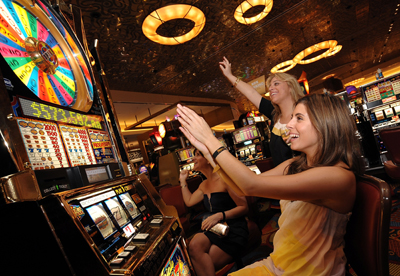
In the world of gambling, in which chance and strategy intersect, a unique tapestry of beliefs manifests—one that braids luck, fate, and the enigmatic nature of casino games. Casinos, bustling with excitement and anticipation, are not just places for placing bets; they are also arenas in which superstitions thrive. From the novice player to the seasoned gambler, these mysterious practices often shape how individuals approach the games they play, holding the belief that their actions can impact the outcome in ways that go beyond mere probability.
When players gather around roulette wheels, blackjack tables, and slot machines, the atmosphere is thick with stories of lucky charms, rituals, and codified behavior that defy logic yet provide a sense of comfort. Whether it’s wearing a specific outfit, following a particular sequence of bets, or even avoiding certain numbers, the attachment to various superstitions reflects a deep-rooted desire to control the uncontrollable. This article delves into the captivating world of casino game superstitions, examining the beliefs that simultaneously entertain and mystify those who dare to play.
Historical Roots of Superstitions
Gambling games have long been interwoven with an host of superstitions that trace to ancient civilizations. The roots of these beliefs can be associated to humanity’s intrinsic wish to control the unpredictable outcomes related with fortune and chance. In primitive civilizations, activities of chance were often tied to religious practices. Gamblers would invoke blessings or ask for favor from gods, believing that their actions could change the outcomes in their advantage. This basis laid the foundation for the myriad of superstitions that developed as casino games evolved over time.
During the Middle Ages, gambling became a common pastime across Europe, and with it, a rich tapestry of superstitions appeared. Participants adopted numerous rituals and charms, believing they could influence the outcome of games. The importance of numbers, in particular, began to appear in superstitions around card games and dice. The number seven was often considered lucky, while various numbers carried negative connotations. Trang chủ 78win These notions mirrored the cultural contexts of the time, changing as they moved through generations and transformed to new gaming environments.
As gaming establishments emerged in the seventeenth century, particularly in the Italian peninsula and the French nation, the atmosphere surrounding betting became steeped in enigma. The growing availability of gambling activities allowed for the expansion and diversification of superstitions among players. Concepts like charmed charms, designated seating locations, and rituals gained importance, creating a unique culture within betting houses. As these traditions continued to thrive, they became fundamental to the essence of gambling games, illustrating how history and tradition shape the convictions that influence how participants interact with fortune.
Popular Casino Myths
Beliefs surrounding gambling activities are abundant and diverse, mirroring the hopes and anxieties of gamblers as they participate in random activities. One of the most prevalent views is that specific numbers bring luck or misfortune. For example, the number 7 is often seen as a lucky number, frequently sought after by players looking for a favorable outcome. Conversely, the digit 13 is routinely considered unlucky, leading many gamblers to avoid it during their gaming periods.
Another common belief relates to rituals that players believe can affect their odds. Whether blowing gently on dice before a roll, using a particular hand to place a bet, or even wearing specific items of attire, many people feel that these actions can sway fate in their favor. These practices offer a feeling of control in an otherwise unpredictable environment, reinforcing the idea that fortune can be manufactured through personal convictions and customs.
Finally, the ambiance and atmosphere of the casino itself contributes to superstition. Many players suggest that the presence of specific icons, such as four-leaved clovers or lucky tokens, can enhance their chances of winning. Additionally, players might adhere to the belief that winning streaks can be halted by mundane events, such as someone passing by or a accident at the table. The shared environment in a gambling house can amplify these beliefs, creating a shared culture of myths that goes beyond single encounters.
Impact of Superstitions on Players
Superstitions play a important role in the mindset of gamblers, often influencing their actions and decision-making. Many gamblers think that fortune can be manipulated through various rituals, such as wearing a lucky charm, choosing particular hues, or avoiding certain numbers. This dependence on superstitions can create a sense of control in an environment that is inherently unpredictable. Players frequently feel more self-assured and involved when they believe that their actions could sway the result of a game in their favor.
The influence of these superstitions extends beyond individual players, affecting the overall atmosphere inside the casino. For instance, a player who holds the belief in the luck of a particular slot machine might draw a crowd, as onlookers are fascinated by their apparent luck. This collective belief can heighten excitement and create a lively environment, leading to an interesting experience even for those who may not necessarily be believers themselves. The excitement around specific games can lead to increased participation and longer playing sessions, supporting the casino’s vibrant social scene.
In some instances, superstitions can lead to detrimental effects for players. Relying too heavily on rituals can result in poor gambling decisions, as some may overlook basic strategies in favor of unfounded beliefs. Additionally, the stress to perform rituals may heighten anxiety and tension, detracting from the enjoyment of the experience. Ultimately, while superstitions can enhance the excitement of playing casino games, they can also lead to unwise choices that overshadow the enjoyment and entertainment intended in the casino experience.